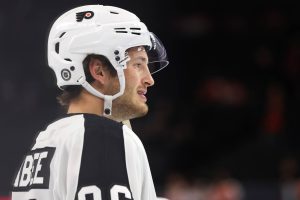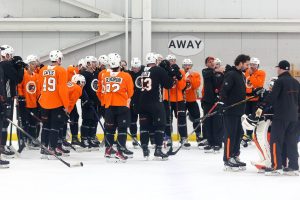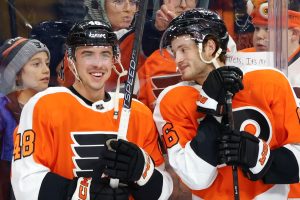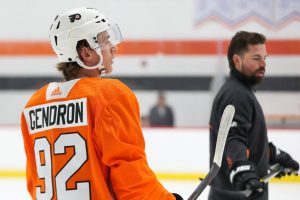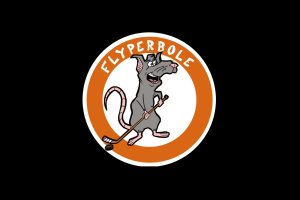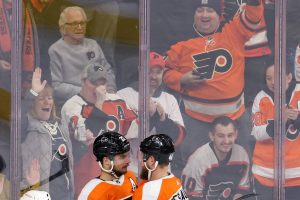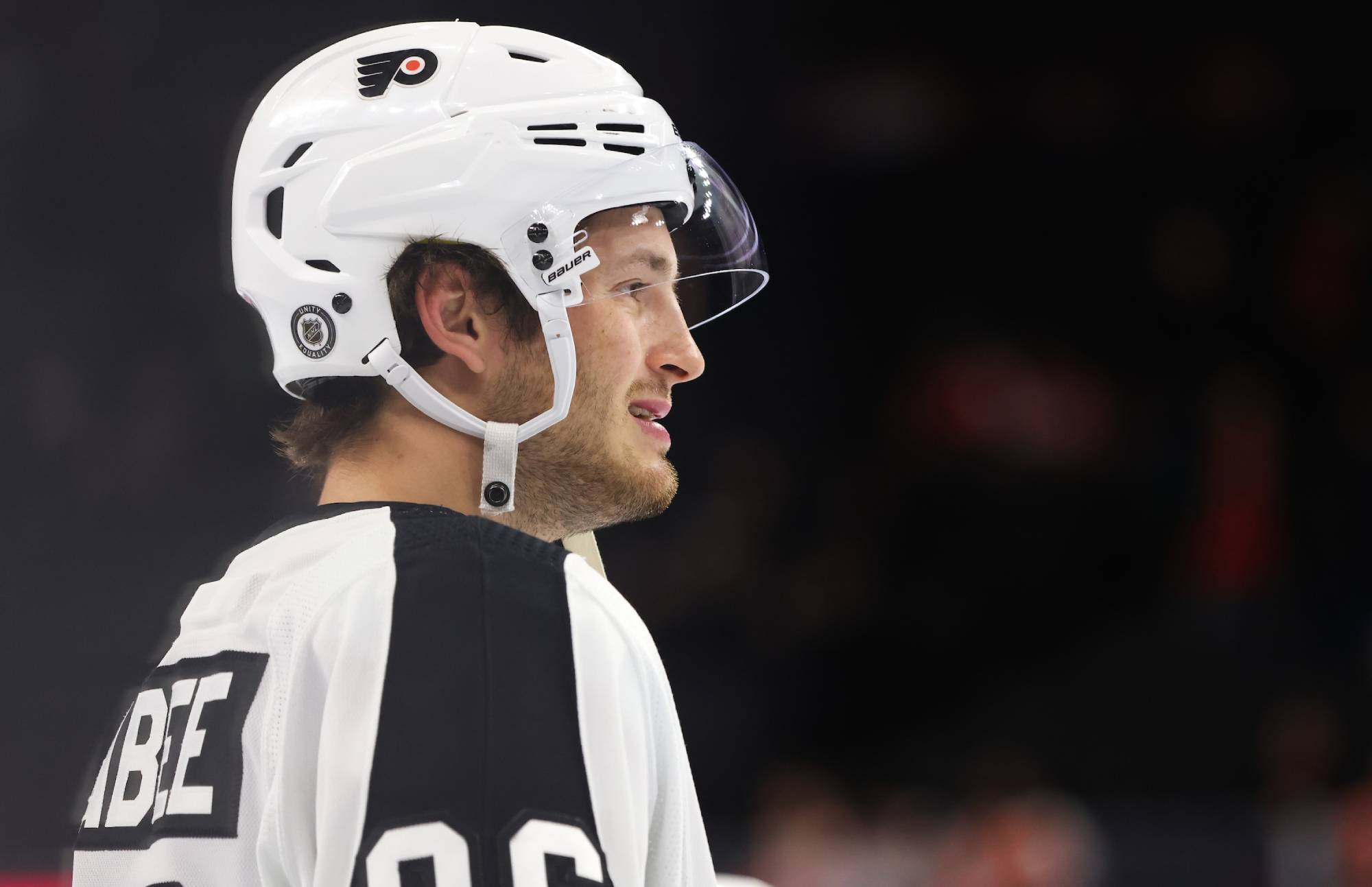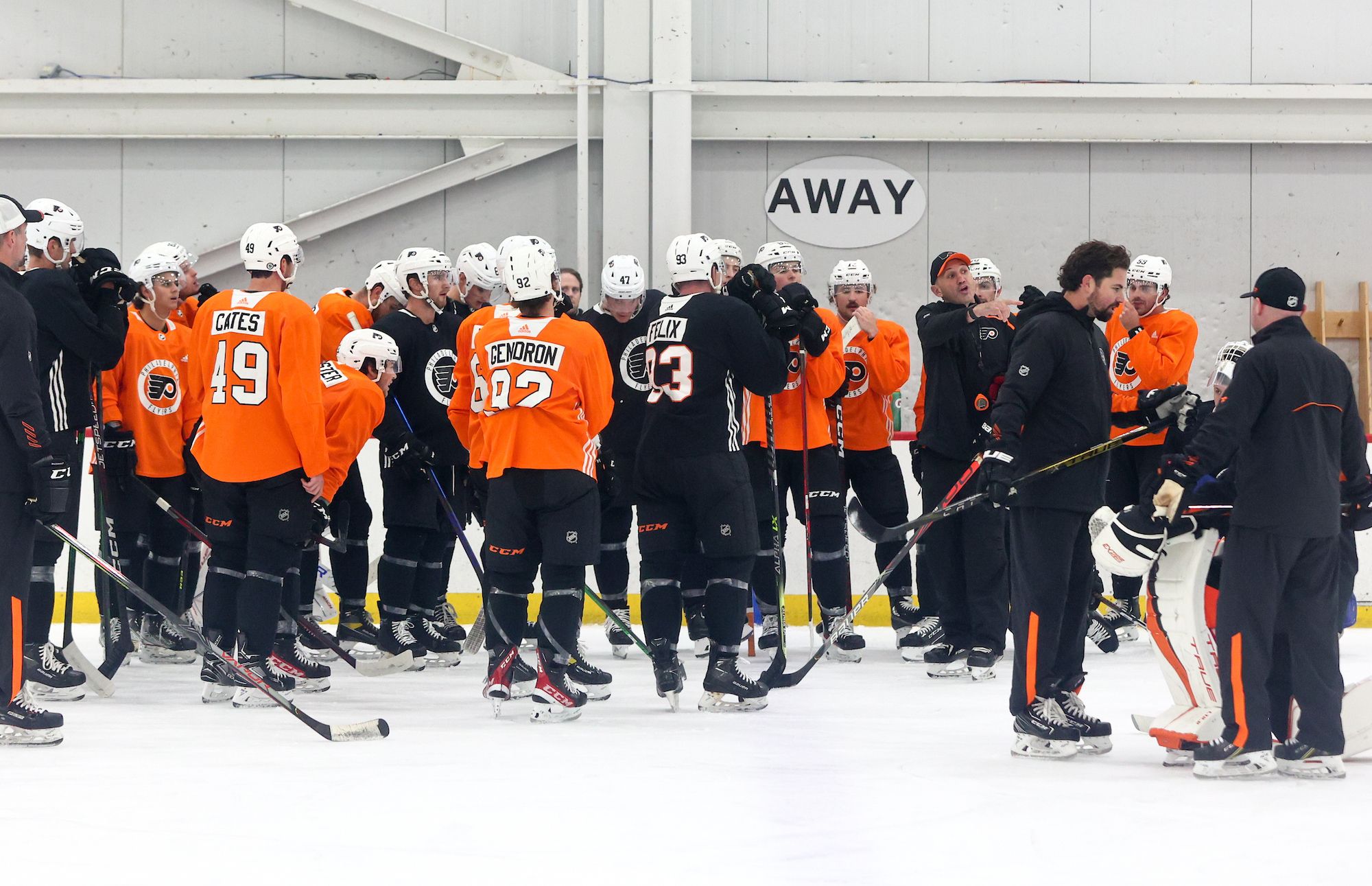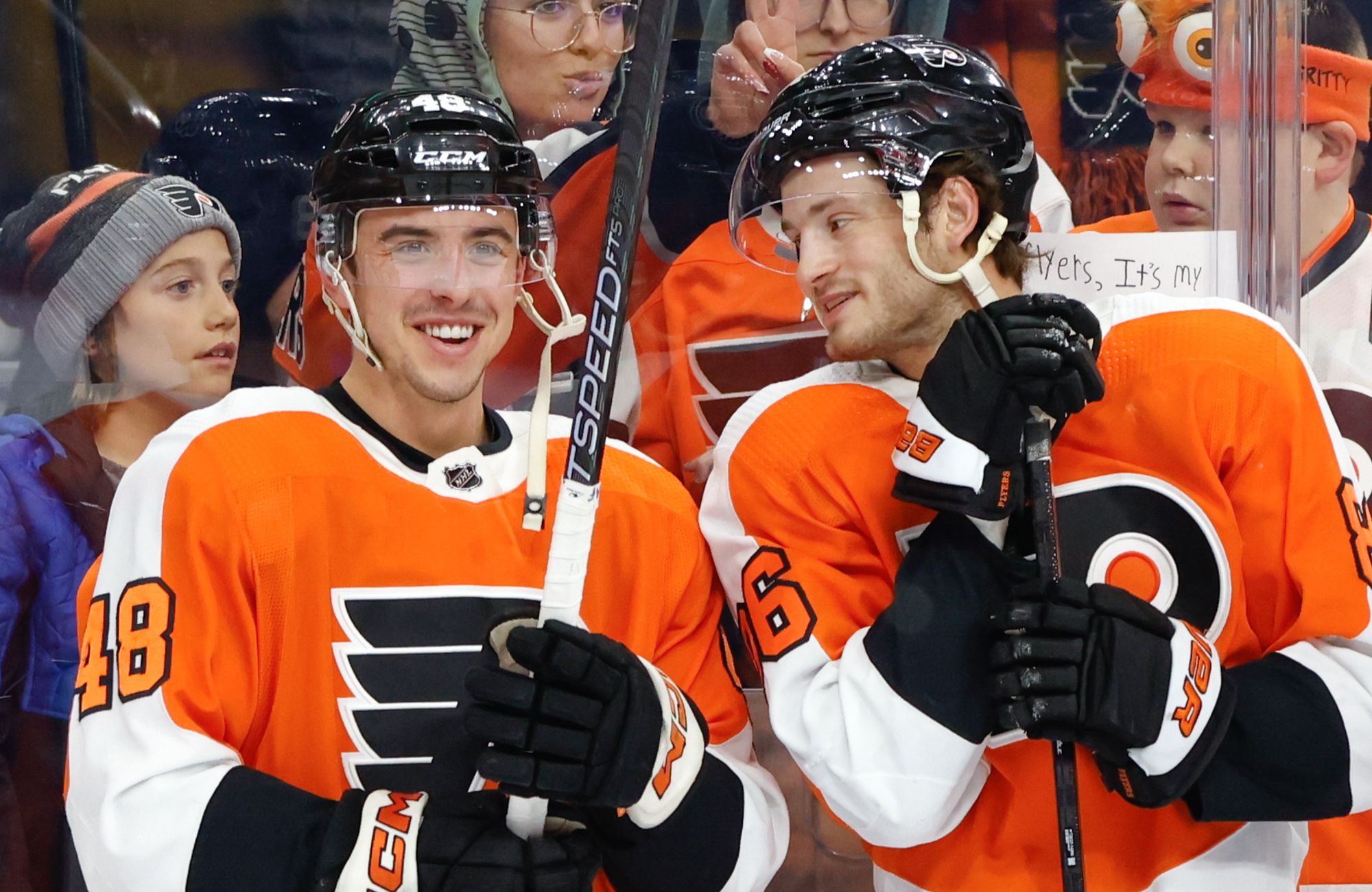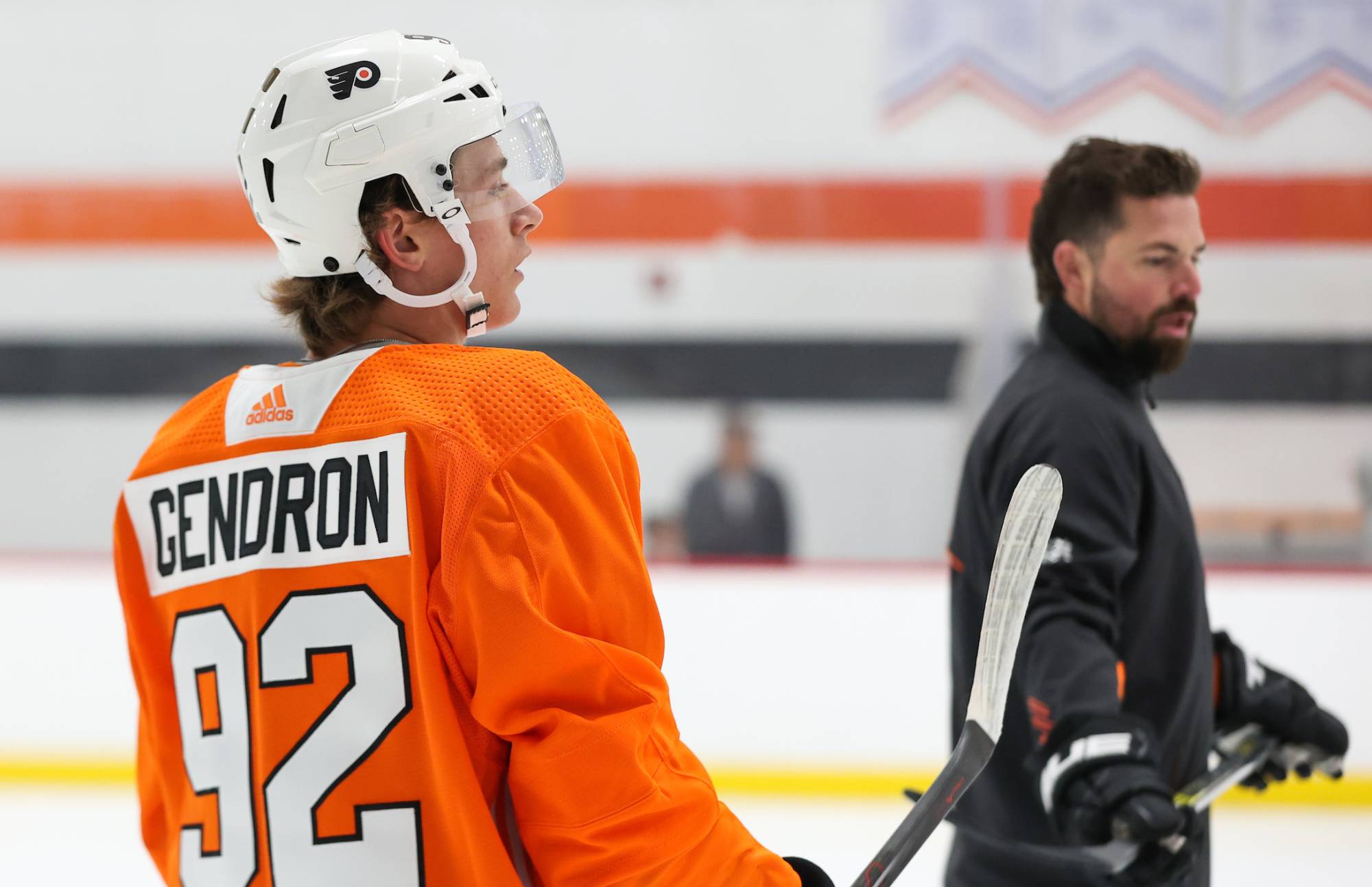With the St. Louis Blues just three wins away from their first appearance in the Stanley Cup Final since 1970, there are a few former Philadelphia Flyers who have garnered attention over the last few weeks. After an impressive 2017-18, Brayden Schenn came back down to Earth this season with just 17 goals in 72 games and only one goal in 16 playoff contests so far. Thanks to his late game-winner in Game 4 and game-winner in double overtime of Game 7 in their series against the Dallas Stars, Patrick Maroon has been getting a ton of love this postseason despite the fact he’s averaged under half-a-point per game over his 449-game career and has only scored 20 goals in a season when he played on a line with Connor McDavid and Leon Draisaitl. Then there’s Craig Berube, who is yet again pushed a team into the playoffs after that team looked destined to finish near the bottom of the league when he took over. When the assessment of his time as a head coach in the NHL is simplified to this it looks like the Flyers may have made a mistake letting Berube go too early, but it doesn’t paint the whole picture.
After he spent four seasons behind the bench as both an assistant and head coach with the Philadelphia Phantoms, Berube was in his sixth straight season as an assistant coach with the Flyers until the fourth game of the 2013-14 regular season when he was named Peter Laviolette’s replacement. Considering he didn’t have the advantage of calling the shots through training camp and the preseason, Berube was thrust into a pretty difficult situation with a lot of tension surrounding the organization. The team sat at 4-10-1 after 15 games due to the fact they had scored 22 goals on the season, none of which came from Claude Giroux. The Captain potted his first goal of the season against the Edmonton Oilers on November 9th to help start a seven-game point streak for Philly that saw the club rattle off six victories and improve to 10-10-2. The Flyers never looked back as they finished the campaign 42-30-10 to finish third in the Metro Division, while Giroux finished third in Hart voting with 86 points and Philadelphia became the fourth team since the 2004-05 lockout to produce seven 20-goal scorers (that group is now at six teams thanks to the Toronto Maple Leafs and Washington Capitals this season). They ultimately lost to the New York Rangers in the first round following a 2-1 Game 7 defeat, but considering the Flyers’ starting goalie missed the first three games of the series and the New York Rangers (coached by Alain Vigneault) went on to the Stanley Cup Final the early playoff exit doesn’t look so terrible.
In May of 2014 the Flyers promoted Ron Hextall from assistant general manager to general manager and it felt as though Berube’s days as head coach of the team were limited (simply due to the fact a new general manager almost always wants their guy behind the bench). Hextall didn’t really help Berube out either, as Scott Hartnell, who scored the fourth-most points for Berube in 2013-14 leave for R.J. Umberger. On the blue line, the hexad (yeah, that’s right) of Mark Streit, Nick Schultz, Nicklas Grossmann, Michael Del Zotto, Luke Schenn, and Andrew MacDonald were the only d-men to play over half the season as Braydon Coburn played in 39 games before being dealt to the Tampa Bay Lightning and Kimmo Timonen only played for the Chicago Blackhawks in 2014-15. In net, the tandem of Steve Mason posted a .928 save percentage in 51 games and Emery posted an .894 save percentage in 31 games, but both goalies missed several games due to injury. While Rob Zepp’s journey to the NHL was pretty incredible his .888 save percentage in ten appearances was not.
Dealt a pretty tough challenge to begin with, Berube didn’t exactly make his 2014-15 season any easier. He called out his young, promising two-way center for not producing the same results as a veteran considered to be the best two-way player in the league (and who was given better linemates to work with) and called out the goalie that carried the team that season for not seeing the puck while being screened by Schultz standing directly in front of him not defending anything. These actions and the fact the club didn’t do too well on the ice in the 2014-15 campaign led to Berube’s firing in April of 2015.
It’s easy to say a coach should be able to adapt to work with what they’ve got, but that wouldn’t really be fair to Berube.
From the day he took over for Laviolette until the day he was let go, Berube saw the overall talent on the Flyers decline steadily. It’s easy to say a coach should be able to adapt to work with what they’ve got, but that wouldn’t really be fair to Berube. Joel Quenneville slowly had key pieces taken away from him in his time with the Chicago Blackhawks and it’s safe to say his time as Hawks’ coach from 2016 to earlier this season wasn’t nearly as fun as his time with Chicago from 2008 to 2015. Putting all this into consideration perhaps Berube did better than some coaches would have if put into that position.
After he took the 2015-16 season off Berube returned to coaching in the 2016-17 season when he was named the head coach of the Chicago Wolves, who was the AHL affiliate for the St. Louis Blues at the time. Following a 44-19-13 season, the Wolves beat the Charlotte Checkers in the first round of the AHL postseason before losing to the Grand Rapids Griffins in the second round, who ultimately won the Calder Cup. This run led to Berube being promoted to being behind the Blues’ bench for the following season, which allowed him to take over for Mike Yeo after St. Louis started this season 7-9-3. Considering how well they were doing during the 2017-18 season before ultimately choking away a playoff spot late in the campaign, and how they had added Ryan O’Reilly and Tyler Bozak this summer to an already talented roster, it was a good time for Blues’ general manager Doug Armstrong to attempt to shake things up and save the season.
Similar to his time in Philadelphia, there was a lot of drama surrounding the Blues when Berube took over. Not only were there rumors that some of the team’s best players may actually be available via trade, but Robert Bortuzzo and Zach Sanford duked it out at practice shortly after Berube was named Yeo’s replacement. Less than a month after the fight at practice, the Blues evidently endured a team-bonding experience that changed the outlook of the season the night before Jordan Binnington shut out the Flyers in his first NHL start on January 7th. The win started a 29-9-5 second half for St. Louis to help them finish third in the Central Division while Binnington went 24-5-1 with a .927 save percentage, 1.89 goals against average, and five shutouts. He allowed three goals against or more in just eight of his 32 appearances. The Blues then beat the Winnipeg Jets and Dallas Stars in the first two rounds of the playoffs, which brings us to now.
When looking at his tenure as the Flyers’ head coach and the Blues’ head coach, there are some similarities. In his first year with both teams each team looked as though they were going to miss the postseason when he was put in charge. Sure, the Flyers were only 0-3-0, but being put in charge of an unexpected shakeup for a fringe playoff team doesn’t scream deep postseason run. In both 2013-14 and this season Berube has earned Jack Adams votes for coach of the year, as he finished sixth in the voting back in 2014 and is a finalist this season. Secondly, he doesn’t mince words if he thinks his players should have made a better play or just play better in general, as evidenced by one of his quotes after the controversial ending the other night. There’s nothing wrong with a coach doing that, but it’s probably better if it’s an attempt to make a player understand his mistake rather than saying something that can be made to look like you’re throwing two of your better players under the bus.
There are a few differences as well. For one, he has more experience as head coach with the Blues than he did with the Flyers. Berube was thrown into both roles, but one role was his first head coaching gig in the NHL while the other came three years later after a year away from hockey and a return to the AHL to perhaps rethink some things that may have been missteps during his first head coaching opportunity.
Looking at Berube’s records with both teams and considering the skill gap between the two clubs, it’s fair to say many coaches could have posted similar records in both places.
Another difference is the skill of the teams. A lot is made about coaching and pushing the right buttons, but it kind of helps when you’re handed a roster that looks more like the Detroit Red Wings of the mid-1990’s than the 2014-15 Buffalo Sabres. Those Flyers’ teams and this Blues’ team aren’t either of those extremes, but there is a pretty big difference between the two. Although there were seven 20-goal scorers on the 2013-14 Flyers, one was Hartnell, another was Vincent Lecavalier (not a joke), and a third was Matt Read, who had 22 goals that season and has 31 goals in the NHL since. Sean Couturier is comparable to O’Reilly now, but Couturier didn’t find his offensive touch until Berube was gone. Philly had two good defensemen in 2013-14 and both were essentially not a part of the team in 2014-15. Anyway you cut it this Blues’ defense featuring Colton Parayko, Alex Pietrangelo, and Vince Dunn is clearly better than either of those Flyers’ defenses.
Looking at Berube’s records with both teams and considering the skill gap between the two clubs, it’s fair to say many coaches could have posted similar records in both places. That’s not necessarily a knock on Berube, as there are some coaches out there who would have failed to turn the Blues’ season around regardless of how talented they are and that should be noted. It’s also worth mentioning the Blues became one of the best play-driving teams in the league after Berube came in for Yeo. This could be because Berube’s strategies are better than Yeo’s or maybe Yeo was somehow failing to get even half of what he should have gotten out of a top-end team and the players just needed a new voice to change morale. That assumption may not be fair to Berube but considering his most notable coaching decision this season was to start Binnington, a move that at the time probably wasn’t too difficult to make, maybe there’s some truth to that theory. He deserves credit for the decision, but considering Jake Allen’s save percentage at the time of Binnington’s first start was .898 and Chad Johnson’s was .888 what did Berube have to lose in early January with his 16-19-4 squad?
It’s possible we underrated how good of a coach Berube was when he was here. It’s also possible some of us are overrating Berube for the Blues’ success at the moment. Both statements can be true. Would Berube have been a better option behind the bench over the last few seasons compared to Dave Hakstol? The answer most Flyers’ fans would have provided at the end of the 2014-15 season is probably different then what they’d say right now. Looking at when Berube was the Flyers’ coach, how much has changed within the organization between then and now, and remembering how there weren’t many voices objecting Berube’s firing (let alone any voices making a case for why he’d be a better choice than most available coaching options at the time) there really is no way Berube could have been the head coach of a Flyers’ team that has gotten as far as the Blues this year.
